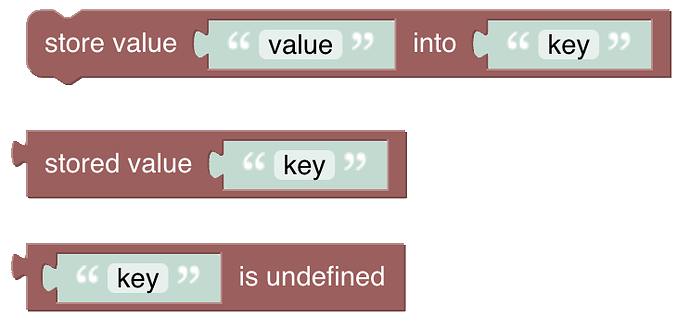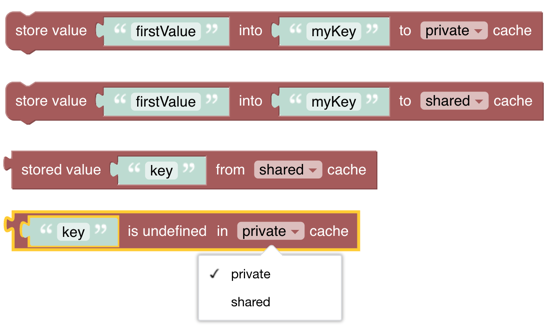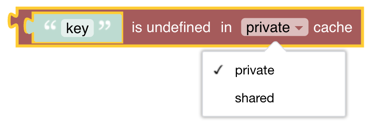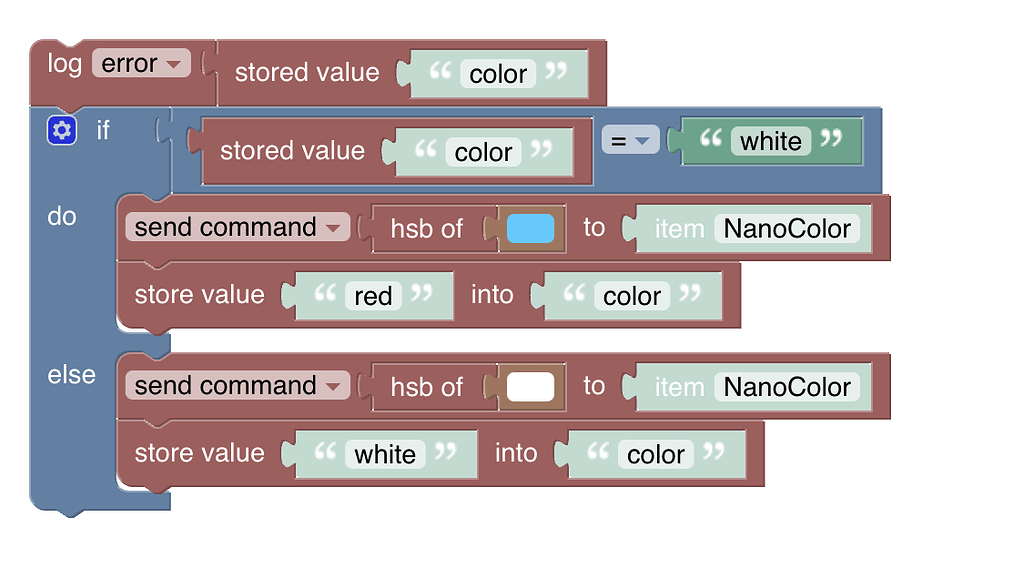# Value Storage
# Introduction
These blocks enable storing information for a rule that is kept after the rule has run, so it can be reused when the rule is run again later in stateful way. Basically a value storage can be perceived as a global variable for the rule instance.
- The values are persisted as a part of the instance of the rule
- Modifying the rule during development creates a new instance which means the value is reset.
- Restarting openHAB creates a new rule instance which also means the value is reset
- In most cases both situations are negligible for many rules.
- If you need full persistence of values that can be used across rules you need to persist the value in one of the persistence engines like MapDB
- By default the value is undefined. To check if a value is undefined, use the special "is undefined"-block
# Overview of the Value Storage blocks

# Caching
Since openHAB 4.0 caching functionality was introduced (provided that the rule is using GraalJS / JS Scripting). The blocks have the same behaviour like before when set to "private cache" which means that the value is stores in the rule cache. When storing a value in the "shared cache" the value can be even used beyond the specific rule in a different rule.

# Value Storage Blocks
See also the short video part about Global Value Storage (opens new window)
# Store Value
openHAB 4.0


Function: Stores a value under the key name in the specified cache.
# Get Stored Value
Since openHAB 4.0:

Function: Retrieves a stored value by the key name from the specified cache.
# Check if Value is undefined
Since openHAB 4.0:

Function: Checks if a value is undefined in the specified cache
# Example 1: Initialize a key if not set

# Example 2: Use the rule instance variable to remember a color that has been set
